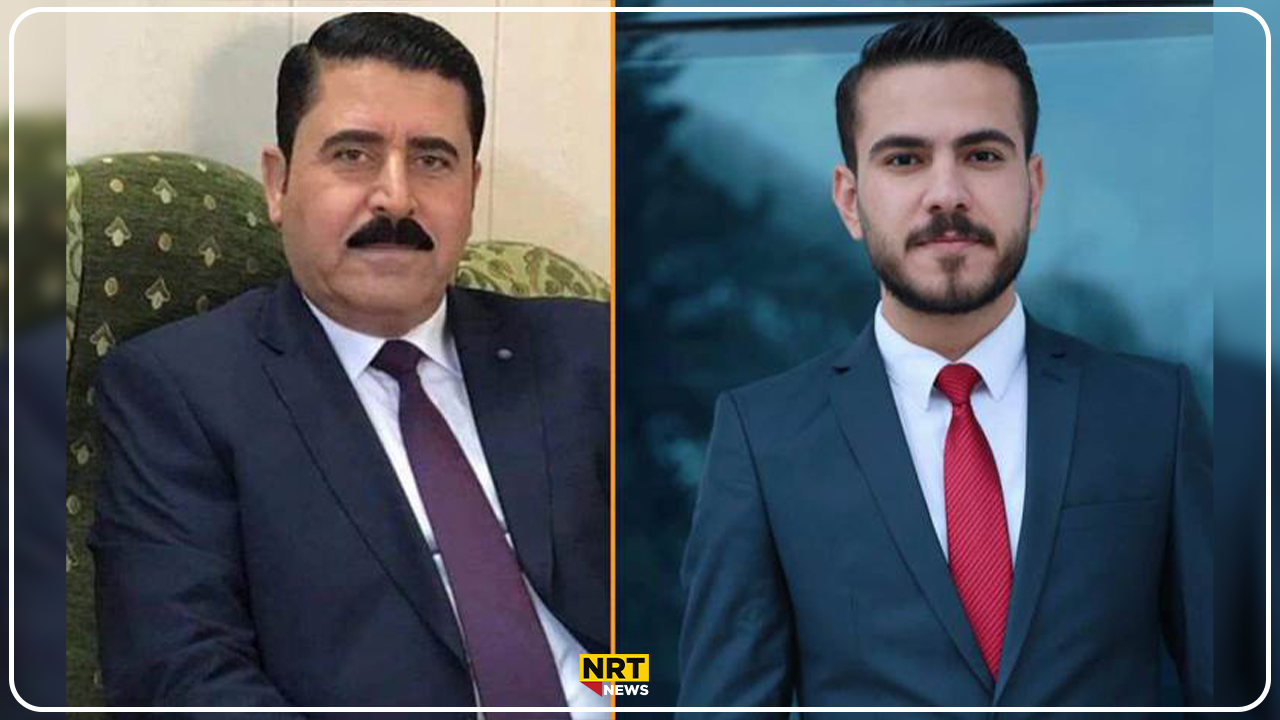
Activist Badal Barwari (L) and journalist Omed Baroshki(R) (NRT Digital Media)
AM:11:56:19/10/2021
5600 View
+
-
SULAIMANI — Fourteen months after they were arrested as part of a crackdown in Duhok governorate, journalist
Omed Baroshki and activist Badal Barwari were sentenced to one year in prison
on Tuesday (October 19), according to defense lawyer Harem Rafat.
Head of their defense team Bashdar Hassan told NRT that
Baroshki and Barwari were tried in accordance with Article 222 of Law no. 16 of
the Iraqi Penal Code of 1969, which concerns involvement in illegal gatherings that incite violence.
This represented a change from the initial charge against
them on a far more serious allegations of endangering national security by attempting to undermine the state, which the pair strongly denied.
It was not immediately clear why it was replaced with the lesser charge.
An observer in the courtroom told NRT that the defendants objected to being convicted on charges involving violence, with Barwari pointing to the same statements presented by the prosecution as evidence of his desire for non-violence.
Defense lawyers also raised numerous objections about how the case and the investigation against their clients had been handled, arguing that due process and the defendants' rights had been violated, the observer said.
The sentence is less than the time Barwari has spent in
prison in pre-trial detention since his arrest on August 18, 2020. He is slated for release on November 26 on the basis of time served. It is not clear how the court is accounting for the additional three months he will have spent in prison beyond his sentence.
Taken into custody on the same day last August, Baroshki was convicted on several
other charges over the summer, including three counts of defamation and two counts of violating Article 2 of the Communications Device Misuse Law, with the court handing down a total of two and a half
years in prison for those convictions.
Their trial was repeatedly delayed over the past several months as prosecutors failed in their attempts to provide witness testimony or evidence against the defendants on the national security charges and judges were replaced or unavailable on several occasions.
Baroshki's mother told NRT that she hoped that the court that convicted him on the other charges will order his release, while his brother called on the authorities to transfer him out of the Asayish detention facility in Erbil where he is being held to a prison in Duhok run by the Ministry of Labour and Social Affairs.
A teacher by profession, Barwari was first arrested in May
2020 on the morning of a protest he helped organize in Duhok city.
Approximately 100 people were later arrested at the demonstration itself. He
was released after fifteen days in jail.
As economic conditions deteriorated over the summer and
public frustration mounted over the Kurdistan Regional Government's (KRG) handling of the crisis,
Barwari and Baroshki were both arrested on August 18 as a way to prevent well-known local figures from publicly criticizing the authorities.
In subsequent weeks, dozens of journalists and activists were arrested in Duhok by the local security forces, which are controlled by the Kurdistan Democratic Party (KDP), as part of a broader crackdown.
The arrests and subsequent trials of the journalists and activists are widely seen as politically motivated with foreign diplomats and rights groups raising serious concerns about violations of due process, the defendants' rights and the conditions of their imprisonment, and judicial independence.
The situation has seriously hurt the Kurdistan Region's reputation on the world stage as it sought to fend off criticism of its human rights record.
Foreign and local watchdogs have expressed alarm about the
deterioration of freedom of the press and expression in the Kurdistan Region
since Prime Minister Masrour Barzani, who is a senior KDP official, took office
in July 2019.
According to the Metro Center for Journalists’ Rights and
Advocacy there were at least 385 violations against 291 journalists and media
agencies during 2020, including assaults, arrests, office closures, and
harassing lawsuits.
In February, journalists Sherwan Sherwani, Guhdar Zebari, and Ayaz Karam and activists Shvan Saeed and Hariwan Issa were convicted on the same national security charges initially faced by Barwari and Baroshki and sentenced to six years in prison.
Higher courts twice denied their appeals and they remain behind bars.
Journalist Qaraman Shukri was sentenced to seven years in prison on the same charges in a secret trial earlier this summer.
Dozens of others who were arrested last year continue to languish in pre-trial detention.
Activists Masoud Ali, Sherwan Taha, Bandawar Ayub, and
Kargar Abbas are set to go to trial on the national security charges on
Wednesday and activists and teachers Amr Khalid, Sleman Kamal, Sleman Musa,
Jamal Khalil and Firsat Ahmed will have a separate trial on Thursday.
(NRT Digital Media)
This story was updated at 2:23 p.m. EBL